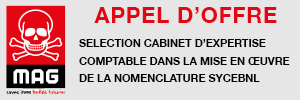.
Background
UN Women, grounded in the vision of equality enshrined in the Charter of the United Nations, works for the elimination of discrimination against women and girls; the empowerment of women; and the achievement of equality between women and men as partners and beneficiaries of development, human rights, humanitarian action and peace and security. The United Nations Entity for Gender Equality and the Empowerment of Women (UN Women) is the UN agency mandated to accelerate progress on gender equality and address the needs of women worldwide. UN Women supports Member States in setting and implementing global standards for achieving gender equality and coordinates gender-related work within the United Nations. UN Women’s regional representation for West and Central Africa (WCA) is comprised of 10 Country Offices (COs), and support to 14 UN Country Teams (UNCTs) where UN Women is a non-resident agency (NRA). All are coordinated and supported by the Regional Office (WCRO) in Senegal. WCA is a complex and diverse region comprised of Least Developed countries (LDCs) and Middle-Income countries (MICs). The cumulative effects of polycrisis in the region are adversely pushing millions of women and girls into poverty in West and Central Africa. The new Women’s Economic Empowerment Strategy launched in 2024 articulates UN Women’s vision for enabling women’s economic agency, autonomy and well-being.
Anchored in UN Women’s Strategic Plan 2022–2025 and the 2030 Agenda for Sustainable Development, its objective is to provide a framework that galvanizes internal and external stakeholders to work together at the local, national and global level through transformative solutions that improve the lives of women and girls with no one left behind. It identifies three key priority areas, or Gender Equality Accelerators (GEAs), where UN Women can make the most progress: (i) women and the world of work, (ii) gender-responsive climate action and (iii) transforming care systems. In line with the new Women’s Economic Empowerment Strategy, UN Women WCARO partners with a wide range of stakeholders, including governments, the United Nations system, civil society, women’s and youth organizations and the private sector in promoting (a) women’s access to jobs and finance in the green and blue economy; (b) women’s entrepreneurship and public procurement opportunities for women-led businesses; (c) women’s and girls’ access to unpaid care-related solutions, services and infrastructures, d) improving women’s income security and social protection and (e) formulating and implementing gender-responsive macroeconomic policies. The Women’s Economic Empowerment Team of UN Women’s Regional Office for West and Central Africa is looking to recruit an intern to support the unit’s work. The intern will be reporting to the Policy Advisor Women’s Economic Empowerment, and will be supported by the Regional Feminist Economist, who will be supervise the intern in their day-to-day work.
Description of Responsibilities/ Scope of Work
The intern will report to UN Women’s Regional Policy Advisor for Women’s Economic Empowerment and is expected to work alongside and support Women’s Economic Empowerment team with the following tasks:
• Assist in conducting targeted research and data collection on subject matters, sectors and countries relevant to WEE in the region
• Assist in developing key knowledge and communication products (policy briefs/ advocacy briefs) on a range of topics (care economy and gender-responsive social protection, affirmative procurement, gender and macroeconomic policy; women opportunities in the green economy transition green jobs for women, etc.)
• Provide editorial and translation assistance and draft project documents, meeting minutes, reports, proposals, PowerPoint presentations, etc.
• Provide coordination and logistical support in the organization of webinars, and workshops for capacity building or project implementation purposes.
• Participate in Women Economic Empowerment activities and events Learning goals include:
• Enhanced knowledge on gender equality and women’s economic empowerment;
• Enhanced knowledge on gender and economics in development in Africa;
• Enhance knowledge on the policy, programmatic and operational aspects of working at UN Women.
• Develop skills in targeted written communication for different audiences
• Work as a team member in a multicultural setting and develop professional relationships with UN Women colleagues and colleagues from other UN agencies
Competencies
Core Values:
• Integrity;
• Professionalism;
• Respect for Diversity.
Core Competencies
• Awareness and Sensitivity Regarding Gender Issues;
• Accountability;
• Creative Problem Solving;
• Effective Communication;
• Inclusive Collaboration;
• Stakeholder Engagement;
• Leading by Example.
Please visit this link for more information on UN Women’s Values and Competencies Framework:
Functional Competencies
• Demonstrable knowledge of feminist/gender economics;
• Demonstrable Knowledge of development issues in Africa, preferably in West and Central Africa;
• Excellent analytical skills on gender and development including the use of quantitative and qualitative research methods;
• Excellent drafting skills in English and French;
• Strong computer skills (i.e. MS Word, Excel, PowerPoint, Teams, Zoom);
• Interest in the work of UN Women and to the ideals of the UN Charter;
• Energetic self-starter with multi-tasking abilities and discipline with deadlines;
• Ability to successfully interact with individuals of different cultural backgrounds and beliefs, which include willingness to try and understand and be tolerant of differing opinions and views.
Education and Certification
• University studies in one of the following disciplines: feminist/gender economics; gender and development, development economics, macroeconomics, or any other relevant development disciplines.
• Be enrolled in a graduate school programme (second university degree or equivalent, or higher); or Be enrolled in a postgraduate professional traineeship program which is part of a degree programme and undertake the internship as part of the program requirements;
Be enrolled in a postgraduate degree programme (such as a master’s programme, or higher);
Have recently graduated with a university degree (as defined in (a) and (b) above) and, if selected, must start the internship within two-years of graduation.
• Experience
Having experience in women’s economic empowerment related issues (care economy and gender-responsive social protection, affirmative procurement, gender, and macroeconomic policy; women’s opportunities in the green economy transition green jobs for women, etc.) is a plus.
Having experience and knowledge of development issues in Africa, preferably in West and Central Africa is a plus.
Knowledge of the SDGs, especially SDG 5 is a plus.
Languages
Financial news subscriptions
Excellent communication skill (written and oral) in both French and English is required
How to Apply
All applicants must submit a completed.
A cover letter (maximum length: 1 page)
Due to the high volume of applications received, we can ONLY contact successful candidates.
Successful candidate will be required to provide proof of enrollment in a valid health insurance plan at the duty station of the internship, proof of school enrollment or degree, a scanned copy of their passport/national ID and a copy of a valid visa (as applicable).
Statements
In July 2010, the United Nations General Assembly created UN Women, the United Nations Entity for Gender Equality and the Empowerment of Women. The creation of UN Women came about as part of the UN reform agenda, bringing together resources and mandates for greater impact. It merges and builds on the important work of four previously distinct parts of the UN system (DAW, OSAGI, INSTRAW and UNIFEM), which focused exclusively on gender equality and women’s empowerment.
Diversity and inclusion
At UN Women, we are committed to creating a diverse and inclusive environment of mutual respect. UN Women recruits, employs, trains, compensates, and promotes regardless of race, religion, color, sex, gender identity, sexual orientation, age, ability, national origin, or any other basis covered by appropriate law. All employment is decided on the basis of qualifications, competence, integrity and organizational need.
If you need any reasonable accommodation to support your participation in the recruitment and selection process, please include this information in your application.
UN Women has a zero-tolerance policy on conduct that is incompatible with the aims and objectives of the United Nations and UN Women, including sexual exploitation and abuse, sexual harassment, abuse of authority and discrimination. All selected candidates will be expected to adhere to UN Women’s policies and procedures and the standards of conduct expected of UN Women personnel and will therefore undergo rigorous reference and background checks. (Background checks will include the verification of academic credential(s) and employment history. Selected candidates may be required to provide additional information to conduct a background check.)




